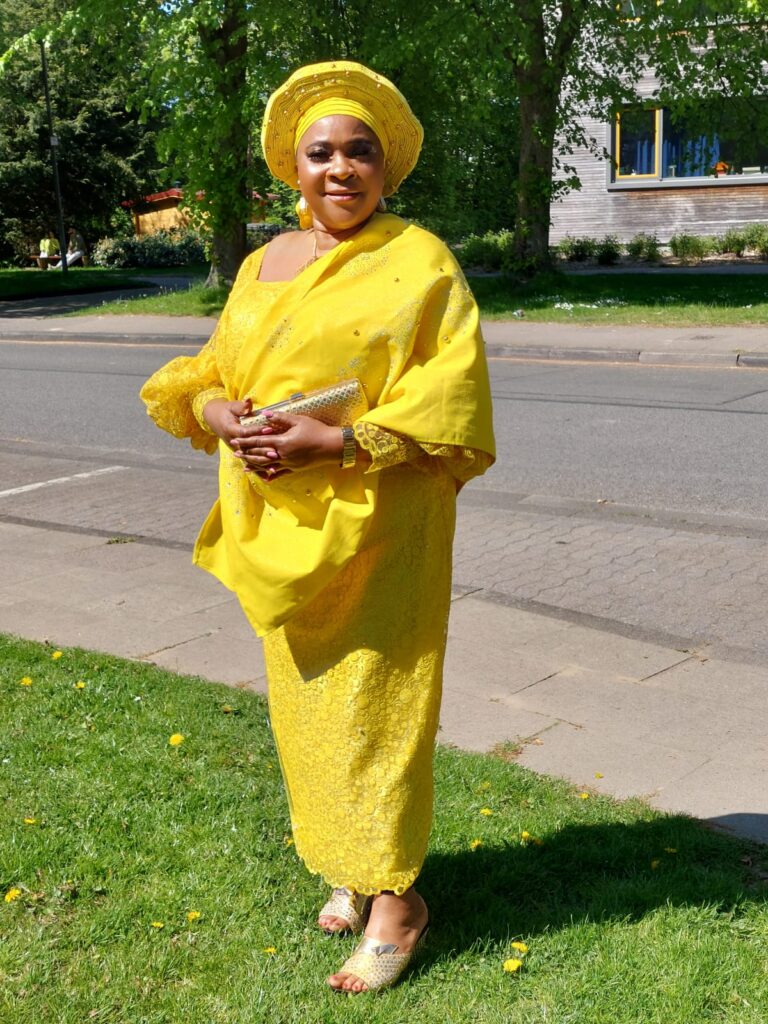Join Us In Making
The World A Better Place
Founder Mrs Bertha Abey Eyong discovered a new career in philanthropy upon the passing of her Husband in 2019. After the burial of her husband, she met a lady in Kumba Cameroon who was widowed in her mid-30s, with four young children. Cameroon remains one of the most difficult places in the world to be a widow. As a direct result of her widowhood, the lady slipped into abject poverty overnight as her rights to inheritance were egregiously ignored by her brothers-in-law.
She was forced to sell what little remained after addressing the healthcare debts of her late husband, and was forced to take desperate decisions such as selecting only one of her children to educate. Mrs Bertha Abey Eyong later realized in her grieving that this single event of widowhood destroyed many families, and all the generations that followed – the event of widowhood launched a vicious cycle of poverty.

We currently concentrate on the situation of widows in sub-Saharan Africa. Our goals are to:
- Support the international campaign to end harmful cultural practices which ignore the human rights of widows and lead to their dire poverty and social exclusion.
- Raise awareness and understanding of the discrimination and violence encountered by widows in many countries.
- Continue to advocate for widows’ rights to be integrated into the human rights agendas of national and international agencies.
- Promote the emergence of a vibrant and informed network of community based groups, widows’ groups, NGOs, lawyers and human rights activists working on widowhood issues.
Human Rights Violations
In the developing world, widows suffer 3 main violations of their rights:
Disinheritance
- Prevented from rightful inheritance, including things brought into marriage or contributed during married years
- May become part of estate and inherited herself
Discrimination
- Prevented from accessing rights
- Prevented government entitlements
- No access to justice
- Social stigma, shame, & taboo
Harmful Practices
- Subjected to cleansing rites including cutting, and scarring
- Subjected to intense sexual violence
OUR IMPACT
Together with other organisations, Bertha Widow Empowerment Centre has led to the recognition that widow’s rights must be on the agenda of national Governments, UN agencies as well as International NGOs concerned with gender issues and violence against women.
Together with other organisations, Bertha Widow Empowerment Centre has led to the recognition that widow’s rights must be on the agenda of national Governments, UN agencies as well as International NGOs concerned with gender issues and violence against women.
MAKING A DIFFERENCE
“I and my children were beaten and kicked out of our house by the brothers-in-law. We live by begging, in continual fear”
This is the fate of millions of widows; traditional customs in sub-Saharan Africa can lead to dire poverty and abuse of widows and their children. Widows lose their homes, possessions, livelihood, as well as their children to their husband’s family.
Even when laws exist to prevent the abuse of widows, ignorance of the law or cultural habits, impede access or implementation of legal remedies. WRI works with local partners at grassroots levels for social justice and human rights for widows.
An example of making a difference was set by bringing together local Chiefs, village headmen and other men of influence to listen to the traumatic events widows in the local area have to suffer, the organisation was able to convince these important people to bring an end to harmful practices such as a widow being forced to drink the water her husband’s corpse was washed in.
We aim at meeting the learning needs of children whose mothers are widows. Education for all is the most important program we strive so hard to accomplish within our targeted communities.
We aim to relief poverty within our targeted communities through creating of sustainable developments.
We are always continue to do our best in providing basic sanitary needs (such as personal needs to young girls) within our targeted communities which can sustain them for a period of one year and counting. Most girls at age 13 to 17 are unable to have access to sanitary pads which has resulted them to contract all sort of disease and infections.
HOW YOU CAN MAKE A DIFFERENCE
There are three ways for you to make a real difference to often desperate lives.
1. Become a member of the BEWECEN network.
If you belong to a women’s group or are a human rights activist, legal professional, journalist, academic or are working for an NGO and are interested in challenging traditional harmful practices and abuse of widows, or providing services for widows and their children, please join our network.
2. Send us information.
Information about widows and their challenging mistreatments, changes in the law or cases of widows affected by harmful cultural or traditional practices.
Email any documents or links to bewecen @gmail.com
3. Make a donation.
If you’d like to contribute directly to our essential work, and help save lives – Please do make a donation. Your penny can help a family obtain a meal. thank you!
Please contact us for more.
Our Core Ideology
- Love: We esteem love among each other thus extends compassion to the neglected in the society.
- Commitment: We are committed to ensure an enabling environment where every widow, orphan and survivor enjoys their rights.
- Equality: We exercise equality among everyone in our society and ascribe to promote honesty in our work.
- Justice: We value human beings as having dignity, rights and being equal, thereby promoting justice and fairness.
- Hard work: We believe in hard work and team work to ensure justice for all.
- Humility: Humility is the mark of our service.

